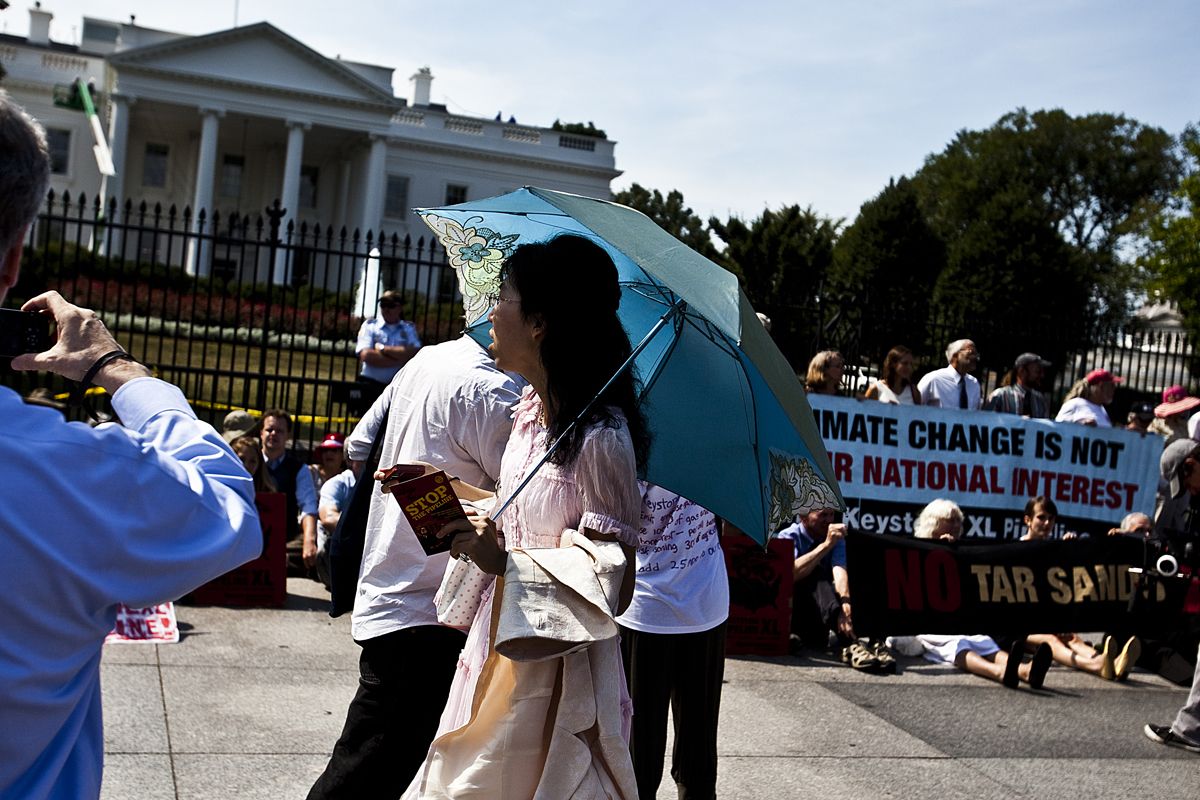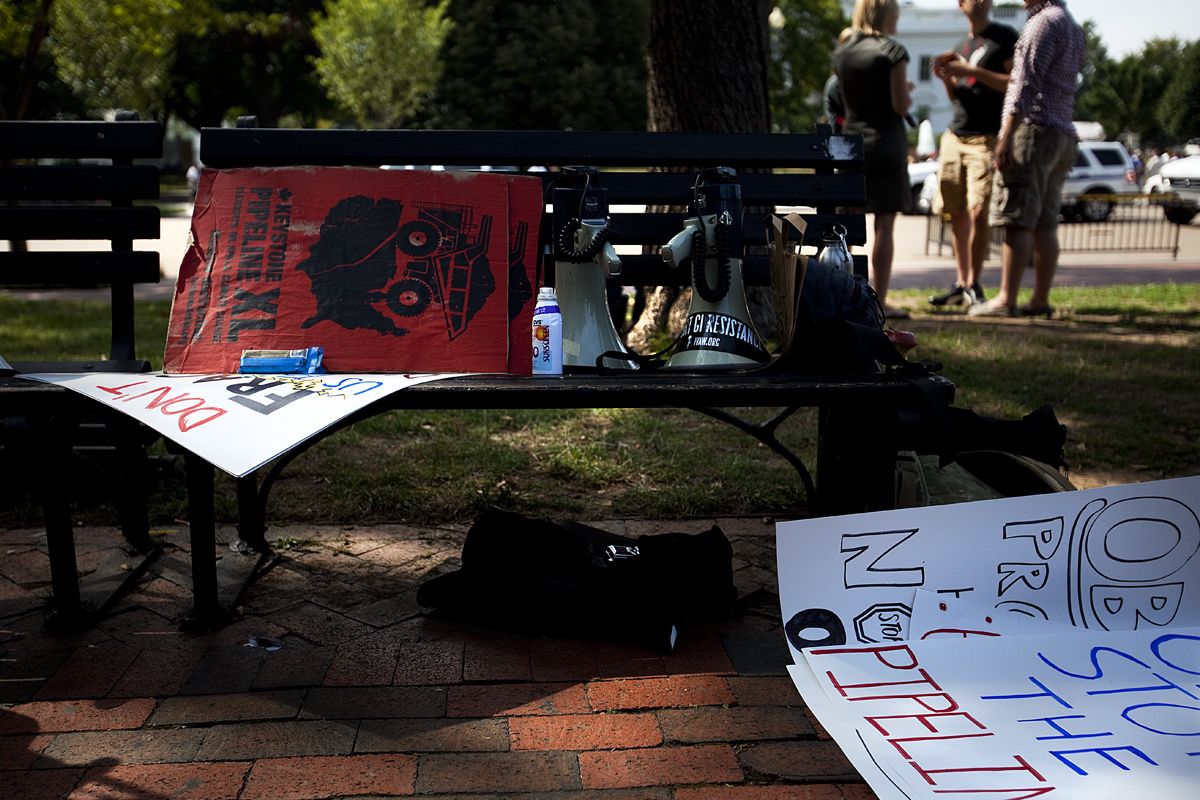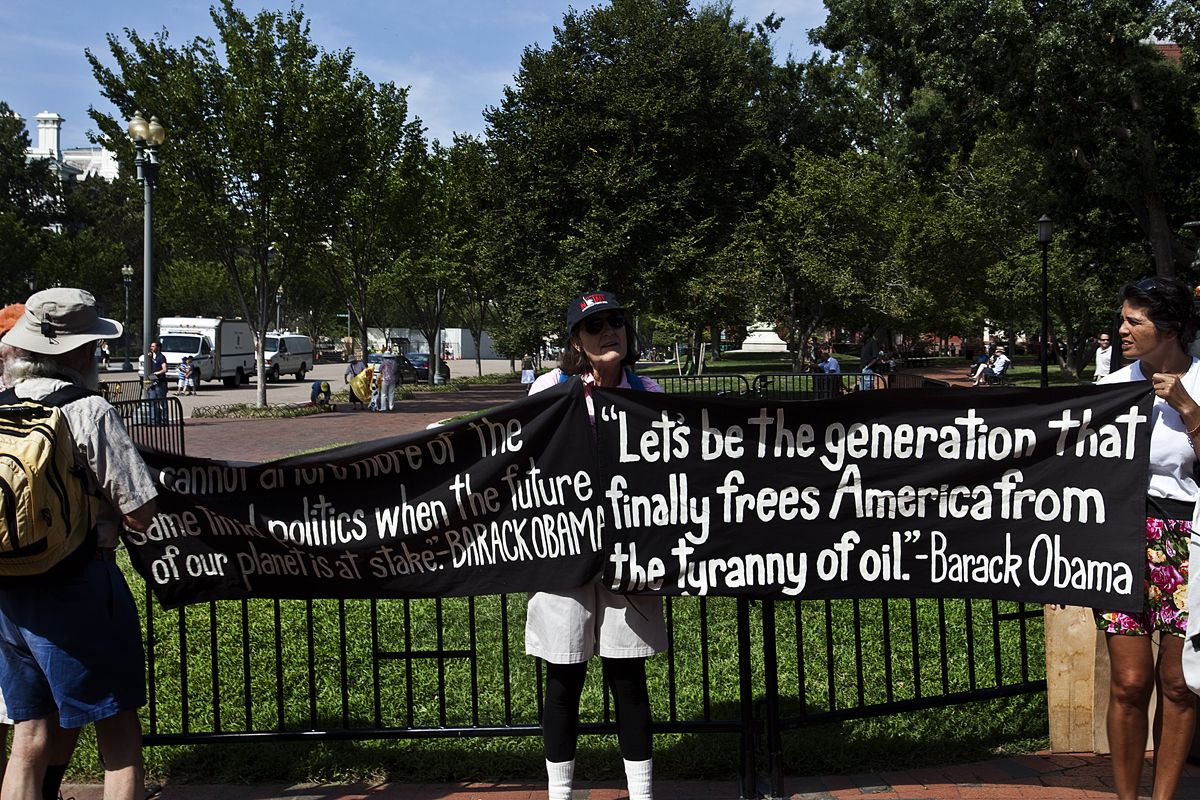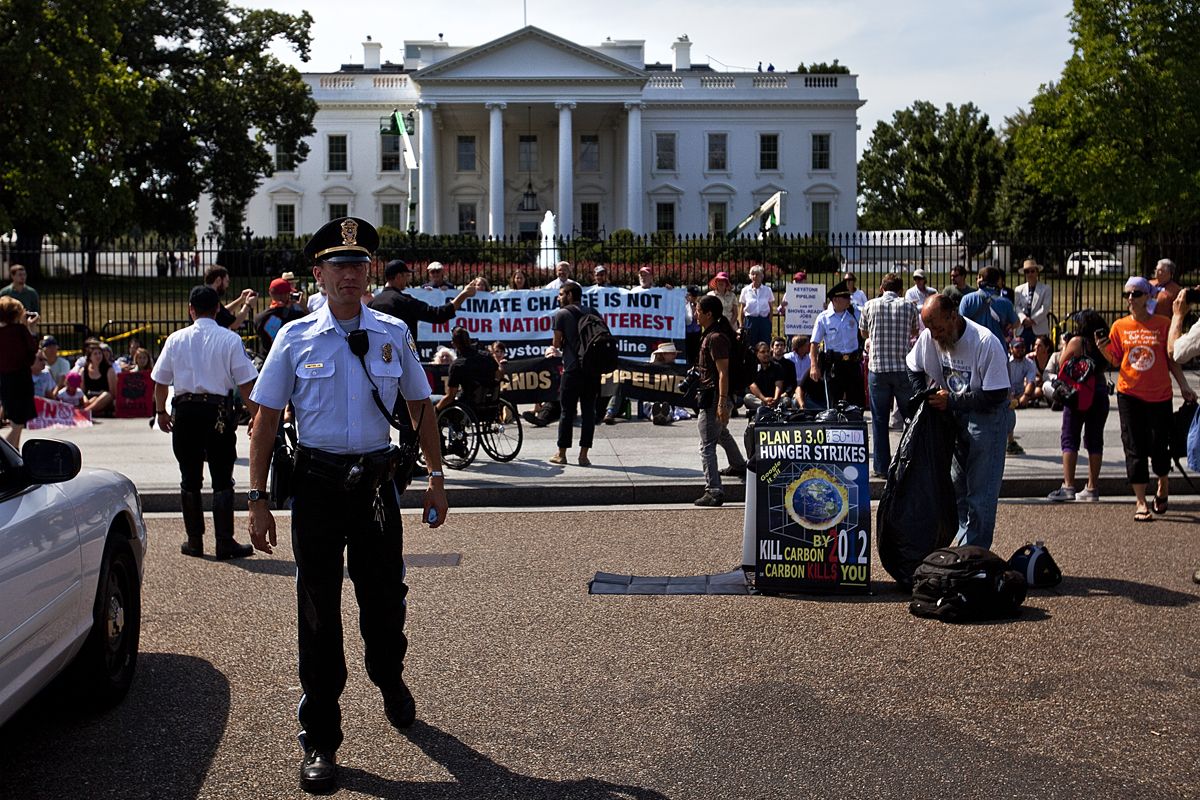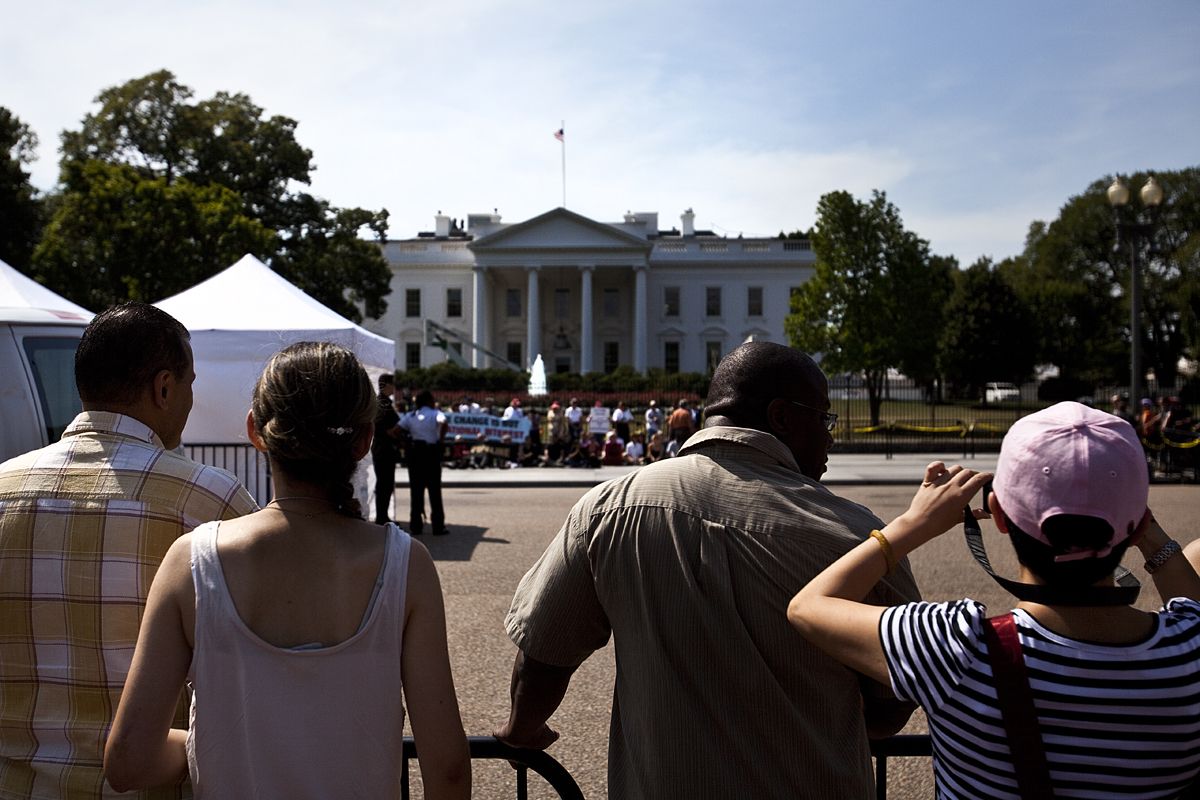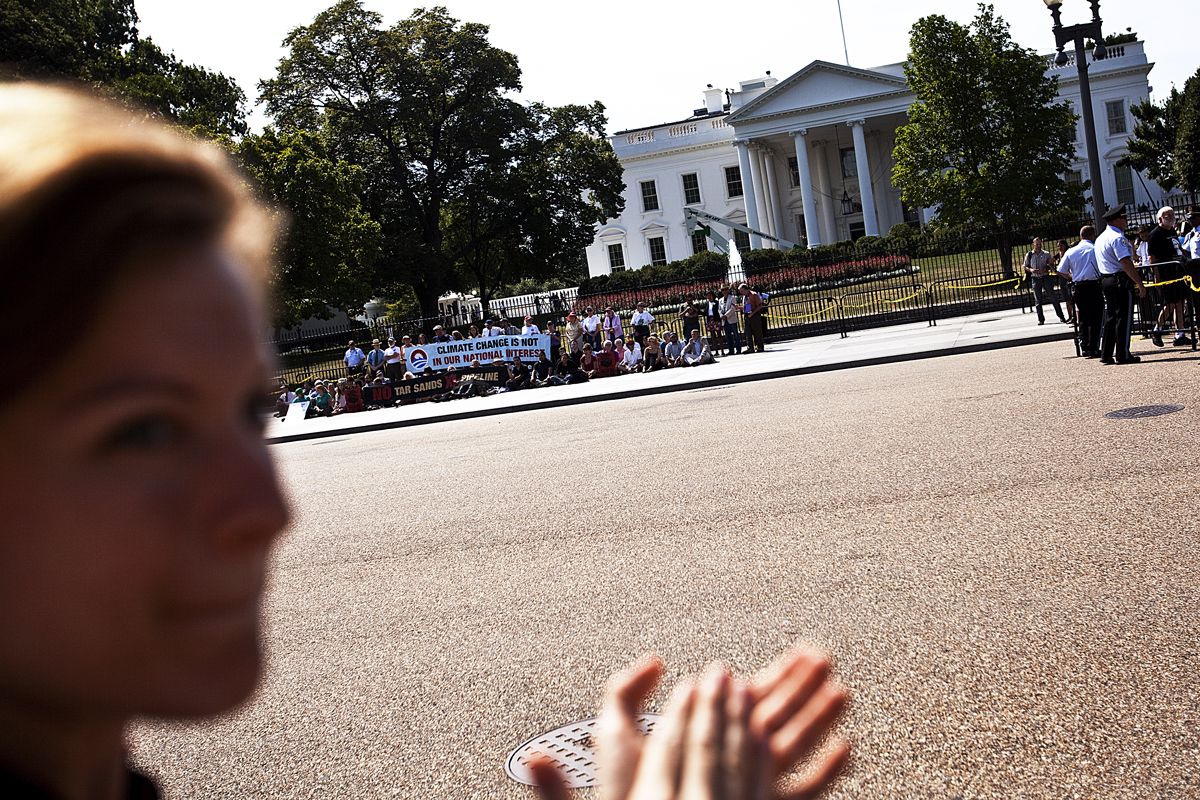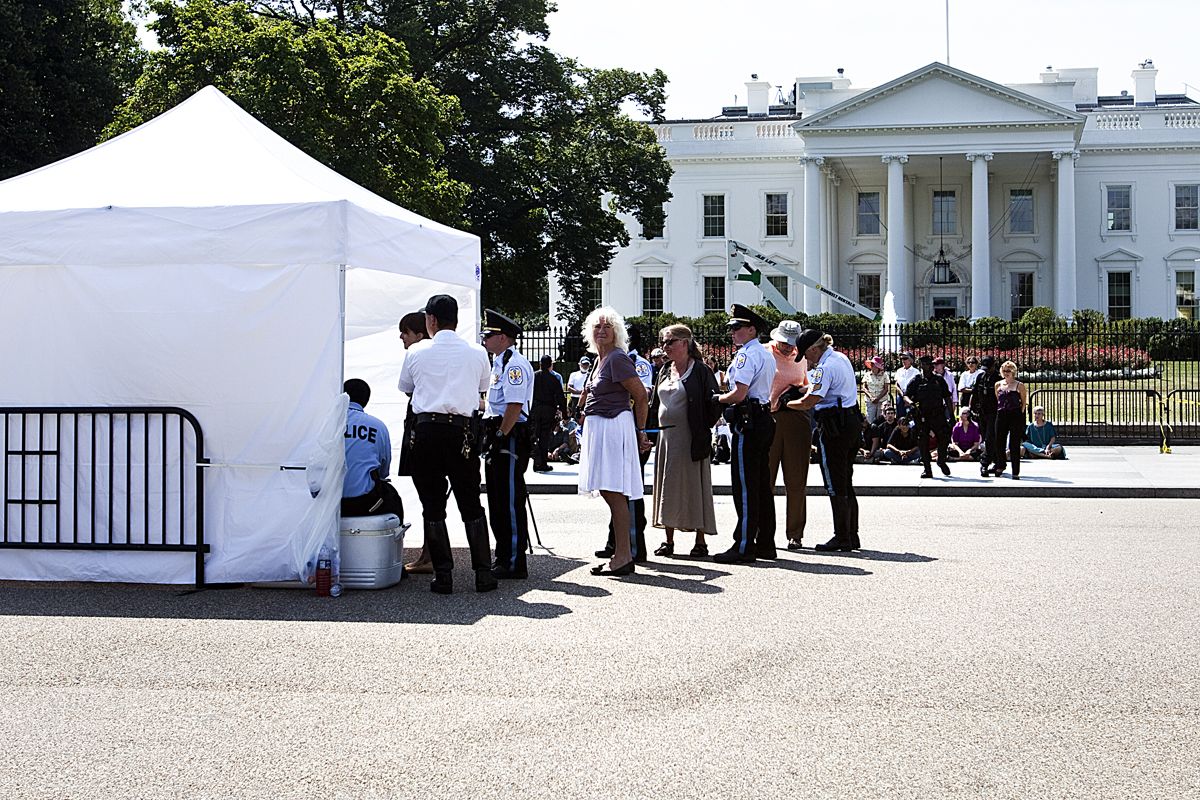More than 80 protesters gathered in front of the White House on August 25 to rally against the proposed construction of the Keystone XL oil pipeline that will connect oil sands in Alberta, Canada to refineries in Port Arthur, Texas.
The two-week long protest, organized by Tar Sands Action, drew environmental organizations, human rights activists and individuals whose hometowns would be affected by the 1,661-mile long pipeline project.
Most of the protesters participated in a sit-in at the White House’s north fence. A smaller group of observers and protesters who wanted to avoid being arrested watched from across the street in Lafayette Square Park.
The TransCanada Corp., a major North American energy company, first proposed the $13 billion pipeline project in 2008, and since then it has attracted the ire of environmental groups. In June 2010 some 50 members of Congress as well as the Environmental Protection Agency expressed uncertainty about the benefits of building the pipeline. Final approval of the pipeline is at the discretion of the State Department, whose initial environmental impact assessment is currently under review.
A report by the Perryman Group, seen by some as a mouthpiece for the oil industry, claims the pipeline could add as much as $20 billion to the U.S. economy in the short-term and create more than 13,000 jobs. Supporters of the project also include the AFL-CIO and the Teamsters union.
The protesters say they are taking their case to the White House because they want President Obama to fulfill his campaign promise of steering the U.S. away from oil toward a cleaner, greener energy sources.
Cherri Foytlin, who took part in the demonstration, said she was directly affected by last year's BP oil spill and came to Washington to "make a bigger voice and to protect our world." She calls herself an "accidental activist" who got involved with environmental awareness campaigns after the BP spill, which she says continues to degrade the ecosystems of her home state, Louisiana.
Joe Uehlin, who served on the UN Commission on Global Warming in the 1980s and 1990s, was among the estimated 200 protesters arrested so far.
"I saw how our international and national mechanisms have failed us," Uehlin said "We need drastic action to stop putting carbon in the atmosphere."
Regina White, a resident of Citrus County, Florida, said she was worried about how the Keystone XL project may affect Florida's fishing and tourism industries.
"[The Keystone XL pipeline] seems like a huge scratch that is an unnecessary wound on the North American Continent," White said.
The Tar Sands Action protests will continue daily until Sept. 3.
